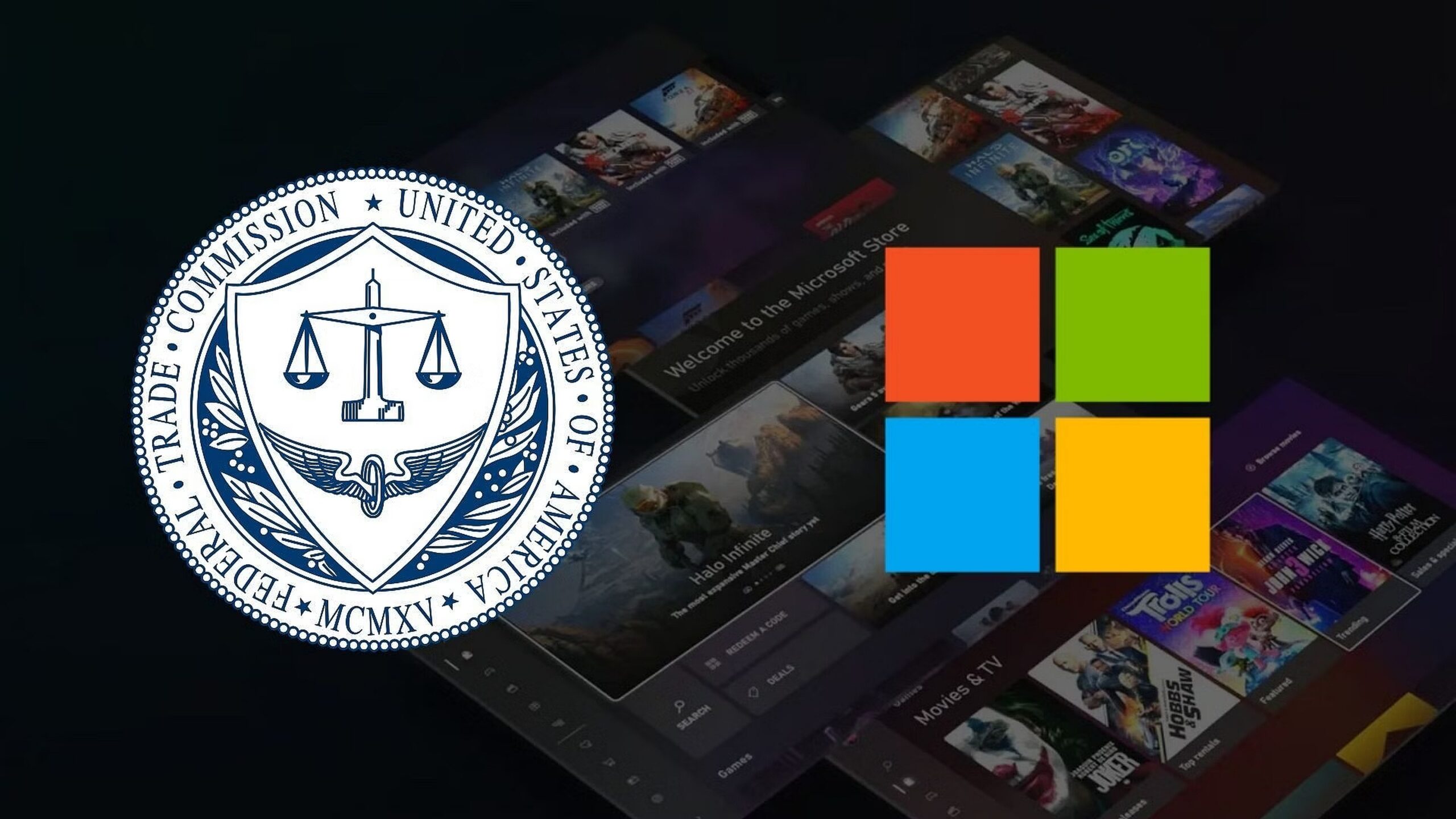FTC Challenges Microsoft's Activision Blizzard Buyout: A Legal Battle

Table of Contents
The FTC's Concerns Regarding Competition
The FTC's core argument centers on the potential for the merger to significantly reduce competition within the gaming market. Their concerns are multifaceted and far-reaching.
Stifling Competition in the Gaming Market
The FTC argues that allowing Microsoft to acquire Activision Blizzard would grant them an unfair competitive advantage, potentially stifling competition in both the console market and the broader gaming ecosystem. This concern stems primarily from Microsoft's potential to leverage its control over popular Activision Blizzard titles, such as Call of Duty, to exclude competitors.
- Restricting Access to Key Titles: The FTC is particularly worried about Microsoft limiting access to Call of Duty on rival platforms like PlayStation and Nintendo Switch. This could significantly damage competitors' ability to attract and retain customers.
- Impact on Game Developers and Publishers: The merger could also harm smaller game developers and publishers, who might face increased pressure from a dominant Microsoft. This could lead to reduced innovation, less variety in gaming experiences, and potentially even higher prices for consumers.
- Reduced Consumer Choice: Ultimately, the FTC fears that this merger could result in less choice for gamers, potentially forcing them into a Microsoft-centric gaming ecosystem.
Bullet Points:
- Reduced consumer choice and platform diversity.
- Increased prices for games and gaming subscriptions.
- Limited innovation and stifled competition among game developers.
- Potential for Microsoft to leverage its market power to disadvantage rivals.
Concerns about Subscription Services and Game Pass
Another key area of concern for the FTC is the potential impact on the gaming subscription market. Microsoft's Game Pass service is a major competitor, and acquiring Activision Blizzard's portfolio of games could make it even more dominant.
- Increased Game Pass Dominance: Integrating Activision Blizzard titles into Game Pass would significantly enhance its appeal, potentially attracting even more subscribers and further marginalizing competing subscription services.
- Disadvantage for Competitors: This could make it extremely difficult for competitors like PlayStation Plus or EA Play to stay viable, ultimately reducing choice for gamers who prefer those alternatives.
- Exclusive Content and Lock-in: The FTC is also wary of Microsoft using the acquisition to create exclusive content or features only available through Game Pass, thereby locking consumers into their ecosystem.
Bullet Points:
- Increased market share and dominance of Microsoft’s Game Pass.
- Reduced viability and competitiveness of rival subscription services.
- Potential for exclusive content to lock consumers into the Microsoft ecosystem.
Microsoft's Defense Strategy
Microsoft is aggressively defending its proposed acquisition, arguing that it will ultimately benefit both consumers and the gaming industry as a whole.
Arguments in Favor of the Merger
Microsoft counters the FTC's claims by emphasizing the potential benefits of the merger, focusing on increased innovation and expanded gaming opportunities.
- Increased Investment in Game Development: Microsoft promises increased investment in game development, potentially leading to more high-quality games and a wider variety of gaming experiences.
- Expansion of Gaming Access: They also highlight the potential to bring Activision Blizzard's games to a wider audience through Game Pass and other platforms, including cloud gaming services.
- Technological Advancements: Microsoft argues that the merger will accelerate innovation and technological advancements within the gaming industry.
- Maintaining Call of Duty Availability: A critical element of Microsoft's defense is its repeated commitment to continue releasing Call of Duty on PlayStation, even after the acquisition.
Bullet Points:
- Increased investment in game development and innovation.
- Broader access to games for a larger audience.
- Technological advancements and improved gaming experiences.
- Continued multi-platform release of key titles like Call of Duty.
Legal Precedents and Antitrust Laws
The FTC's challenge is based on several antitrust laws, most notably Section 7 of the Clayton Act, which prohibits mergers that may substantially lessen competition. Microsoft's legal team will likely argue that the merger doesn't meet this threshold.
- Section 7 of the Clayton Act: This act is the cornerstone of the FTC's case and will be central to the legal arguments.
- Past Antitrust Cases: Both sides will likely cite past antitrust cases involving tech giants to support their positions. These precedents provide valuable context and guidance for the court.
- Comparative Mergers: Analysis of comparable mergers and acquisitions in the tech industry and their regulatory outcomes will also play a significant role in shaping the court's decision.
Bullet Points:
- Section 7 of the Clayton Act – the legal foundation of the FTC's challenge.
- Relevant precedent from past antitrust cases involving major tech companies.
- Comparison to similar mergers and their regulatory outcomes.
Potential Outcomes and Implications
The outcome of this legal battle remains uncertain, but several scenarios are possible.
Scenarios for the Future
The FTC's challenge could result in several different outcomes:
- FTC Victory: If the FTC prevails, the merger would be blocked, preserving the status quo in the gaming industry. This would likely maintain a more competitive landscape.
- Microsoft Victory: A victory for Microsoft would allow the acquisition to proceed, potentially leading to significant consolidation in the gaming market.
- Negotiated Settlement: The parties might reach a negotiated settlement, where Microsoft agrees to certain concessions to address the FTC's concerns. This could involve commitments regarding Call of Duty availability or other aspects of competition.
The long-term implications of each scenario are significant and will undoubtedly affect the future of mergers and acquisitions in the tech sector.
Bullet Points:
- Blocked merger: Increased competition and a more fragmented gaming market.
- Approved merger: Potential for increased market consolidation and reduced competition.
- Negotiated settlement: Potential for Microsoft to make concessions to address antitrust concerns.
Conclusion:
The FTC's challenge to Microsoft's Activision Blizzard buyout represents a pivotal moment for the gaming industry and antitrust law. The outcome will significantly impact competition, consumer choice, and the future of mergers and acquisitions in the tech sector. The arguments presented by both sides highlight the complexities and potential consequences of such massive corporate transactions. Further developments in this ongoing legal battle will undoubtedly shape the future landscape of gaming. Stay informed about the FTC's challenge to Microsoft's Activision Blizzard buyout to understand how this pivotal legal battle will influence the gaming world. The future of gaming, and the balance of power within the industry, hinges on the resolution of this crucial antitrust case.

Featured Posts
-
 Haaland Summer Transfer Latest News And Updates From Man City
May 19, 2025
Haaland Summer Transfer Latest News And Updates From Man City
May 19, 2025 -
 Armenian Lyrics Added To Survivor For Eurovision Song Contest
May 19, 2025
Armenian Lyrics Added To Survivor For Eurovision Song Contest
May 19, 2025 -
 Will Juan Soto Bounce Back Analyzing His Slow Start With The New York Mets
May 19, 2025
Will Juan Soto Bounce Back Analyzing His Slow Start With The New York Mets
May 19, 2025 -
 Fertility Clinic Bombing Suspect Fbi Investigation Suggests Death In Blast
May 19, 2025
Fertility Clinic Bombing Suspect Fbi Investigation Suggests Death In Blast
May 19, 2025 -
 Erling Haaland Injury Return Date Prediction For Manchester City
May 19, 2025
Erling Haaland Injury Return Date Prediction For Manchester City
May 19, 2025
